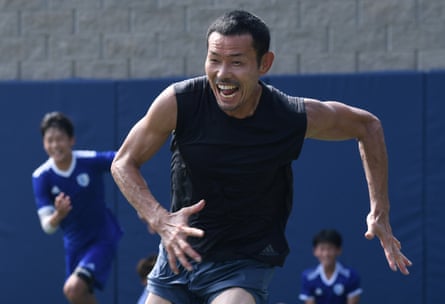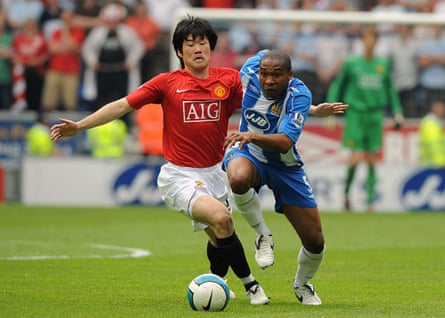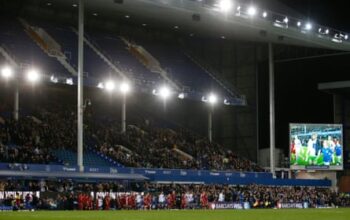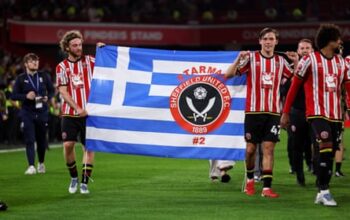That successful east Asians have strict parents is a well-worn trope in western media but there is no getting away from the fact that Son Heung-min, one of the most successful Asians athletes of all, has a dad with quite a reputation.
I remember being at Korea Football Association (KFA) House in downtown Seoul when officials, some of whom knew Son Woong-jung from a playing career that was cut short by injury, made themselves scarce upon being told he could be about to visit.
This was not long after October 2011, when he expressed unhappiness that his son had been called up for international duty from Germany where he was starting to make a name for himself with Hamburg, only to sit on the bench for successive Korea games. While many sympathised, it was unusual to hear such public criticism from the relative of a young player.
Son senior was always seen as a tough taskmaster for the current Tottenham captain thanks to tales of four-hour keepy-uppy sessions and a relentless drive for perfection that helped Son become world famous. That was also a selling point of the Son Football Academy set up in 2021 and run by Son Sr. It offered the chance for a select group of young hopefuls to learn at the feet of a man who had played such a pivotal role in the development of the captain of Spurs and South Korea.

Now, however, there is an investigation into his coaching methods at the facility in Chuncheon, a pleasant lakeside city known in Asia as home to a spicy chicken dish and the setting for the 2002 TV series Winter Sonata, a major milestone in the development and popularity of Korean dramas. Son Sr and two of his coaches have been accused of giving verbal and physical abuse to students. After a training camp held in Japan, the parents of a young player accused coaches in March of hitting their son with a corner flag, among other things. In April, the police sent the case to prosecutors.
In June Son Woong-jung issued a statement. “SON Football Academy and I have apologised to the victims and worked to resolve the issue amicably.” He added, however, that the accusers had demanded an unacceptably large sum of money. “We are currently awaiting a fair legal assessment of the situation based on facts.
“However, many of my accuser’s claims differ from what actually happened. On my honour, I can swear that none of the actions or words from my coaches came from a place that wasn’t based on love for our students.”
A group of parents of some other children at the academy released a statement saying that nothing untoward had happened. Son has acknowledged that his methods may not be the most modern. “I admit that I stuck to my own ways without recognising the standards set by the changing times,” he said. “I will seek other ways that can help young athletes concentrate on the field and stay committed to training.”
Times have changed in South Korea and while there are still remnants of a Confucian-influenced seniority-based society, it is not what it was. It is hard to imagine a repeat of a K League game just after the 2002 World Cup when one of the stars of the Korean team that reached the semi-final, Lee Young-pyo,was fouled and pushed by Lee Lim-saeng but ended up bowing to his senior.
Park Ji-sung wrote in his 2006 autobiography of regular beatings suffered at the hands of older players when he was still at school. The former Manchester United midfielder vowed that he would never do the same when he became a senior. His own academy, situated on Park Ji-sung Road in his home city of Suwon, was set up, partly at least, to give youngsters a warm, friendly and violence-free place to play football.
after newsletter promotion

Parents in South Korea no longer accept their children being physically attacked by teachers, coaches or seniors. Corporal punishment was banned in Seoul schools in 2010 and, 11 years later, in the home.
A more gentle atmosphere that can foster creativity should be good for the future of Korean football. For too long there was an over-representation of coaches who valued hard work, discipline, lots of running and players keeping quiet and doing what they were told.
It remains to be seen what happens with the accusations against Son Woong-jung but if the outcome is that Korean football moves on from the old coaching methods then that cannot be a bad thing.
Source: theguardian.com


